A review of the secularity of the Nigerian 1999 constitution
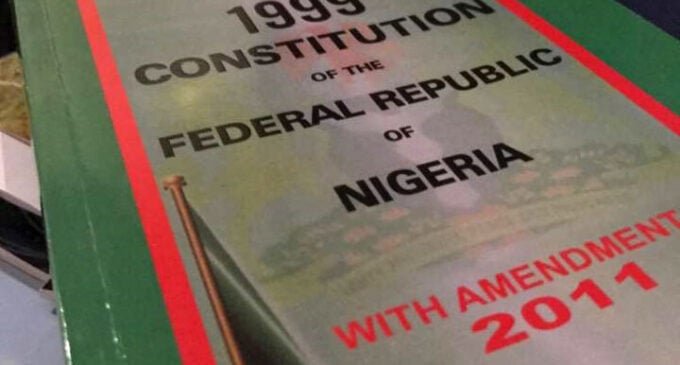
BY JAMES PAM
The Nigerian military government that gave us the 1999 constitution currently in use via military decree No. 24 on 5th May, 1999 wrote on its page 19 that, “We the people of the Federal Republic of Nigeria … having firmly and solemnly resolved … do hereby make, enact and give to ourselves the following constitution.” Nothing could be further from the truth because the people of Nigeria were not consulted via the conventional process of a national referendum.
For a definition and understanding of what secularism means, we shall rely on the definition and opinions expressed in a seminal paper by Dr Godwin N Okeke and published in the International Journal of Humanities and Social Science Invention, Volume 2, Issue 3 of March 2013 (pages 65 – 69) titled, The Ambivalence of the 1999 Nigerian Constitution in Matters Relating to Secularism: a Case for a Constitutional Review. He defined secularism as a system of social organisation or that does not allow religion to influence the government. It is the belief that religion should not influence the government. He explains further that a secular state is therefore a state or country that purports to be officially neutral in matters of religion, supporting neither religion nor irreligion. A secular state also claims to treat all its citizens equally regardless of religion, and claims to avoid preferential treatment for a citizen of a particular religion/non-religion over other religions/non-religion. Although secular states do not have a state religion or equivalent, the absence of a state religion does not guarantee that a state is secular. He opines that secularism is commonly regarded as an ideology that holds that religious issues should not be the basis of politics, or, in the extreme, that religion has no place in public life. Secularism, therefore, seeks to preserve the religious neutrality of government and cultures.
The Nigerian 1999 constitution provided for religion and secularity at the same time in four sections. These are: (1) section 10, which attempts to establish the secularity of the Nigerian state by providing that, “The government of the dederation or of a state shall not adopt any religion as state religion.” (2) Section 38, which re-enforces the rights of Nigerians to freedom of thought, conscience and religion in its 4 sub-sections. (3) Sections 275 and 280, which make a volt-face and contradict the two earlier quoted sections. Section 275 provides for the creation of states Sharia courts of appeal while section 280 provides for the creation of states customary courts of appeal.
First, the provisions found in sections 10 and 38 are completely negated and rendered void by the provisions found in sections of 275 and 280. Second, the adherents of other religions apart from Islam have been relegated to an inferior status and discriminated against by the provisions in section 275 because their religions have not been given equal recognition by the same constitution. Third, while these provisions recognise the important place of religion in our national life, they pretend that we can operate some modicum of secularism and not pluralism.
The matter of secularism or non-secularism of the current Nigeria constitution came to a head at the just-concluded National Conference 2014 when two delegates representing the Christian Association of Nigeria (CAN), Bishop of Kafanchan Diocese of the Roman Catholic Church, Joseph Bagobiri, representing the northern central zone, and Pastor Bosun Emmanuel, representing the south west zone, brought up what they described as the unfair treatment of Christians and Christianity in the country. They submitted at a plenary session that the 1999 Constitution of the Federal Republic of Nigeria was skewed in favour of Islam and Muslims and called on delegates to correct this anomaly.
Pastor Bosun Emmanuel submitted that the 1999 Constitution mentions ‘Shariah’ 73 times, ‘Grand Khadi’ 54 times, ‘Islam’ 28 times and ‘Muslims’ 10 times but does not mention the words ‘Christ’, ‘Christian’, ‘Christianity’ or ‘church’ even once. He concluded his submission very politely by saying, “Some mischievous elements are taking these lapses in the constitution to come to the ungodly decision that probably the state is an Islamic state.” The submissions of the two Christian delegates angered their Muslim counterparts who tried to shout them down.
Pastor Bosun Emmanuel has elucidated his message further in other fora where he opines that the major flaw in our 1999 constitution is its “dual ideology” because it is ambivalent in its religious provisions. He explains that while the compendium tries to guarantee freedom of choice of religion to all Nigerians in one breath, it promotes one religion in another. Also, while the same constitution debars the federal and state governments from adopting a state religion, it violates this itself by recognising one religion above all others.
In our national life today, 12 out of the 36 states of Nigeria have blatantly violated the clear provisions of section 10 of the 1999 constitution which states that, “The government of the federation or of a state shall not adopt any religion as state religion”. These 12 states have each adopted one religion as state religion via state law. Zamfara state led in this impunity in in 2005 and 11 other states have since towed the same path.
It is no wonder that the constitutionally favoured citizens of Nigeria abhor the idea of replacing the 1999 constitution. It is also no wonder that the makers of that constitution made the process of constitutional amendment very cumbersome. National conference delegates who protested against one of the final conference document titled, 2014 Draft Constitution, must be among the constitutionally favoured few in the country. Surprisingly, the mere change of name of this same document appeased them.
The 2014 National Conference recommended 395 amendments to the 1999 constitution. What would become of this constitution after all these amendments might have been implemented? A new constitution would have been introduced by whatever name we care to call it. The opponents of a new constitution for the country seem to be overly jittery at such prospects for reasons best known to them. The delegates who held a press conference to declare their support for this final conference document titled, 2014 Draft Constitution, and the conference leadership who drafted it had no qualms whatsoever with the document or its title.
It must be obvious to readers at this point that the Nigerian 1999 constitution is fundamentally flawed in the treatment of Nigerian citizens and must be thoroughly reviewed because it cannot be sustained much longer. If such a review would, of necessity, mean amending substantial portions of it (up to 80%) then the country is due for a new constitution by popular demand. The Nigerian 1999 constitution is anything but secular.
Nigeria’s religion is ‘political religion’ in the main. That is, the huge obsession by religion by Nigerians is basically for political reasons. Nigerians foist religion to the fore in governance, politics, economics, social debate and in virtually every other facet of national life just so that adherents of their own religions gets whatever there is to gain – seats/participation in government, land, money, higher offices, first position, etc, and not for spiritual growth, economic development or justice. Political religion is all about one religion cheating other religions.
The teachings and tenets of the country’s various religions do not seem to mean a thing to their adherents. Religion has not improved the morals of most politicians nor even the clergy. The various clergy and their politician compatriots enjoy a cosy relationship. The 2002 Pew Global Attitudes Project scored Nigeria 92% (second only to Indonesia) in importance of religion to the people. In the same year Transparency International scored us one of the most corrupt nations on earth. Probably the most emotive and potentially explosive issue in Nigeria today is our constitutional religious imbalance. Let those concerned address the problem quickly.
Rev James Pam, [email protected]
Views expressed by contributors are strictly personal and not of TheCable.






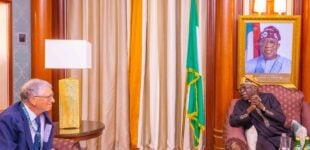
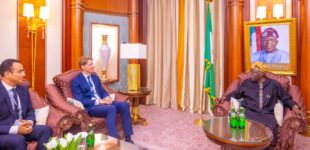


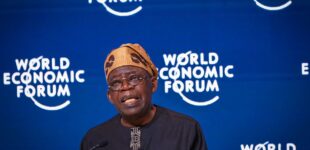

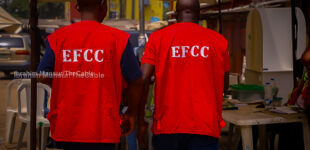

There are no comments at the moment, do you want to add one?
Write a comment